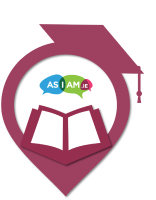
When it was first suggested to me that I might be autistic by a counsellor I was seeing, I had a hard time wrapping my mind around it. Undoubtedly, this was due to a widespread misunderstanding of what it means to be autistic. Unless it’s touched your life in some way, it’s unlikely that you’ll have a comprehensive understanding of what autism is. And even then, the adage often stated by the autistic community holds true: “if you’ve met one person with autism, you’ve met one person with autism.”
At that point in my life, I was 26 and I’d dropped out of college once, almost failed my last year in another degree and was preemptively seeing a counsellor whilst preparing to try college for the third time. I was hoping this time would be the charm. Most people would look at that track record and say “hold on, there seems to be something going on here.” And they’d be right. I had first presented to the doctor in my college when I was 20 in my first year of college. Words like “depression” and “anxiety” were thrown around by the numerous doctors I saw in the ensuing years as I went on and off medication and continued to struggle for no reason that I could understand. When I looked around me at other people my age, I didn’t see myself reflected in them.
For all of my life, I had this profound sense of being “other;” that there was something different about me to others. I had difficulty communicating with others, forging deep connections and being in environments that I couldn’t control. A constellation of traits
that when found together would be termed “autism.” This wears you down over the years and can have a significant effect on your self esteem. On reflection, I can see that stereotypes about how autism presents affected my late diagnosis. There has been a long held belief that those who are biologically male are more susceptible to autism, which has been increasingly challenged in recent years. Those who have other gender identities get swept under the rug since they do not conform to certain beliefs about how autism manifests. As a result of that, they either go undiagnosed or are diagnosed late.
Pursuing a diagnosis as an adult in the Republic of Ireland is tricky. At this point in time, there is no way to receive an autism diagnosis through the public health system. This means that going privately and paying is the only option that is available. At the time of my diagnosis, it cost me 800 euro to be assessed for autism in Dublin. This cost
presents a substantial financial challenge. Many autistic people struggle with finding and keeping employment. This along with other factors presents a significant barrier to accessing health services for autistic people.
The counsellor I was seeing at that time changed my life. I am eternally grateful that he and I crossed paths. As luck would have it, he was working with autistic students in a college in Dublin and he saw parallels between the things that I was experiencing and the students that he was working with. On the other side of this, it’s sad that it took so many years for me to have the tools to understand myself.
When I went to see a psychologist to assess me for autism, I had spent a long time researching autism and slowly coming to terms with what that might mean for me. Getting a diagnosis as an adult is I think a double edged sword. It’s more positive than not but there are many feelings that come along with it. There’s a re-examining of your entire life before diagnosis in the light of newfound knowledge. There are moments of great clarity and of grief for the suffering you’ve had to endure.
The process involved a number of psychological tests and a several hour long interview between a psychologist, me, and people I am close to. It was a straightforward enough process and they confirmed that I was indeed autistic by the end of the session. I think
that it can take several years to really come to terms with a diagnosis like autism and to learn new skills for navigating your life as an autistic person.
When I went to college at 27 to study Fine Art at T.U. Dublin, I had my official papers. The advantage of having an official diagnosis is valuable in an educational context. You are entitled to certain supports if you need them and you can register with the disability service who can advocate for you if you need them to. These are great services but I think that there needs to be a huge amount of work done in providing accessible health and other services to autistic people in Ireland.
Disclosure of whether you’re autistic in a college environment is an individual choice. I disclose to others if I have to spend a significant period of time with them and I feel that some of my autistic traits will affect aspects of our interactions.
I don’t really see what I’m studying now as changing course insomuch as finding a path that suits me better. Being diagnosed has forced me to evaluate how I live my life, what kind of job I want to work and working out how to live my life for myself.
It has been joyful and liberating for me to be in an educational environment having the tools and knowledge to be able to thrive. I still have difficulty managing my sensory environment and communicating with others but I feel a sense of peace with myself that was previously unknown to me.
Having a diagnosis has given me the language to understand myself and my world and I can’t overestimate how beneficial this has been for me. It saved my life.
